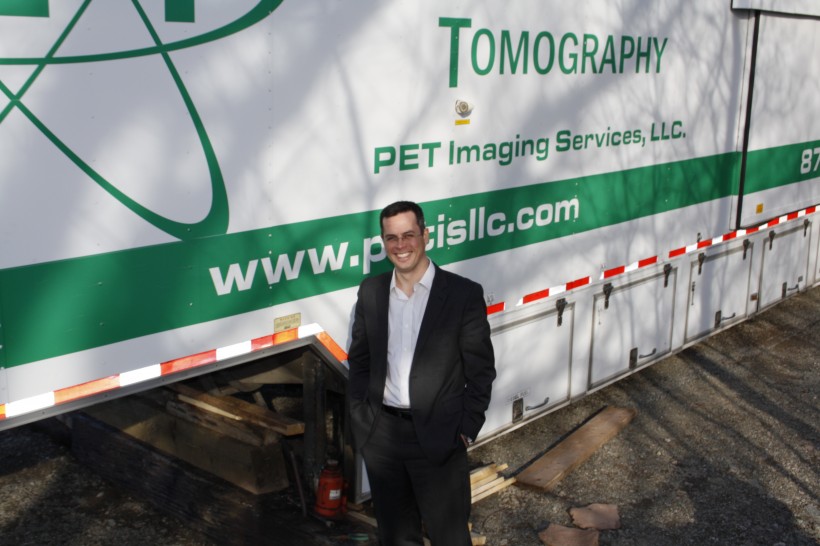Chad Munro sees a lot of potential in Atlantic Canada’s medical technology sector, but it needs more players and more of an ecosystem for the benefits to be realized.
The financial rewards can be great, but there are many challenges in building a medtech company, including the long and expensive regulatory process and defending intellectual property.
Munro, the CEO of Halifax Biomedical, said the right investment capital can attract complementary companies from around the world to form a cluster.
He said Dalhousie University in Halifax could become an internationally significant centre.
“Compared to many U.S. and Canadian universities, Dalhousie has a high ratio of patents per research dollar,” said Munro, whose Mabou company makes 3D imaging devices for the health-care industry.
“Dalhousie could be a core medical technology cluster to attract companies from across Canada. It’s already birthed many early stage med-tech and health-care companies.”
Munro said such companies should be shining stars in Atlantic Canada’s economy.
“Many leading economies are driven by innovation sectors. Med-tech is a high-margin, high-growth, export-oriented sector. If the IP is protected, these companies can generate significant wealth.”
Munro knows the challenges first-hand.
“You have to carry all the R&D and testing costs until you receive a regulatory approval and before the company can even start to sell its products. That quickly adds up to millions of dollars for a single company or single product.”
In the last year, Halifax Biomedical has overcome difficulties by lowering the costs of its main product, the Halifax exam imaging device. It allows two simultaneous X-rays of the knee to be taken from different angles.
The firm has also advanced quickly with a new product that images the spine. It has regulatory approval in the United States, Europe, Canada and Australia.
The company sells surgical supplies and analysis services for every patient monitored with its system.
“This is high-margin revenue, where we have a sustainable advantage,” said Munro. “It is the core of our business model.”
Munro said Atlantic Canada lacks two key ingredients to complete a strong cluster: specialized fund management with successful U.S. medical technology experience, and a significant amount of capital to service deals and attract synergistic companies from elsewhere.
For Munro, “significant” means a venture capital fund focused on medical technology, with more capital than that held by all the funds currently managed in Atlantic Canada.
The sector can make an attractive investment, he said. It often returns more than 10 times the money invested in the early stages of a company, and 2.5 times the money invested later.
When he is not travelling for his own business, Munro, a New Glasgow native, mentors regional medical technology entrepreneurs.
Before forming Halifax Biomedical in 2004, he worked for Swiss medical device company Synthes. There, he turned around two product lines that brought in tens of millions of dollars a year and learned how to pursue and defend patents.
His experience left him with an international network that he leverages for Atlantic Canadian entrepreneurs.
Munro, who holds a master’s in biomedical engineering from Dalhousie, said his company’s location in rural Nova Scotia has not deterred overseas employees.
“Our Mabou location has attracted some of the best people I’ve worked with. Our team is international, with 15 staff in Mabou and three elsewhere.
“Our challenge has been accessing the right capital at the right times. But it wouldn’t have been easier in any other Canadian location because health-care IT and med-tech are under-serviced across the country.”
He said Atlantic Canadians must capitalize on expertise and build a medical technology cluster based in Halifax.
“Many of the core elements are already in place.”










